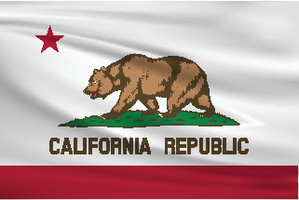[ad_1]

Last Wednesday, the U.S. Supreme Court waded into the complicated and controversial waters of California’s Labor Code Private Attorneys General Act (“PAGA”). At issue was whether pre-dispute arbitration agreements between employers and employees could be enforced to compel PAGA claims into arbitration – California courts had said no. At stake is a huge loophole which allows plaintiffs to ignore arbitration agreements and class action waivers in such agreements to bring cases on behalf of huge groups of past and current employees. Since the plaintiff and their counsel are considered to be standing in for the State of California, PAGA claims also allow plaintiffs to bypass traditional class certification proceedings.
In Viking River Cruises, Inc. v. Moriana, the employer argued that California’s rule exempting PAGA claims from employee arbitration agreements violated the Federal Arbitration Act (“FAA”). The Supreme Court agreed, but only in part. Its nuanced opinion ultimately held that a California rule precluding dividing PAGA actions into two components – individual and non-individual claims – is preempted by the FAA. The Court went on to rule that employers could compel arbitration of an individual claim even though it could not compel arbitration of non-individual claims. Finally, the Court concluded that the California court must dismiss the non-individual claims because there was “no mechanism” in PAGA that gave an arbitration-bound plaintiff standing to pursue representative claims for others in a different forum (that being a court proceeding).
There are several key takeaways for employers from this decision:
- Arbitration agreements must be reviewed to ensure they have appropriate and enforceable class, collective, and representative action waiver provisions.
- Severability clauses also need review in light of Viking River. The Court noted that Viking River’s waiver clause was overbroad to the extent it was a wholesale waiver of PAGA claims, but because of a carefully worded severability clause, the employer was permitted to enforce it as to the individual claim which was, ultimately, all they needed in order to prevail.
- Although a win for employers, this victory, in its totality, may be short-lived. Both the majority decision and a separate concurrence specifically highlight the fact that the California legislature can revise PAGA to create a mechanism for individuals to pursue non-individual PAGA claims, despite having to arbitrate their own claims. You can be sure employee advocates are already working on the text of such bills. While lobbying the California Statehouse often feels like a vain exercise given the employee-friendly atmosphere that prevails throughout California politics, employers should, nonetheless, monitor such legislation and speak up to preserve as much from this victory as possible.
[ad_2]




